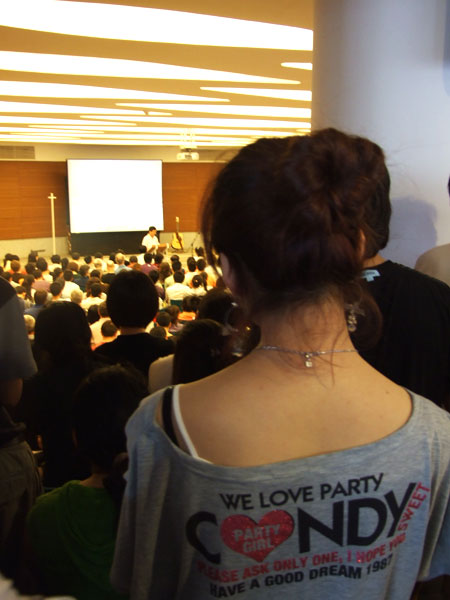Below is a new essay for 6 by Jack, with my thanks.
*
The visits of US leaders to Beijing, including Hillary Clinton, Nancy Pelosi and Timothy Geithner, seem to show a fundamental change in Sino-American relations. As The New York Times put it:
China is growing more assertive on the international stage, and Washington is seeking to find ways to cooperate with Beijing on everything from economic reforms to climate change.
Washington is now showing the most kindness to Beijing, the only possible crutch in the eyes of American decision-makers to help the US out of the crisis. All of a sudden, the common model of past Sino-American engagement, that is ‘US pushes – China responds’, appears to be transforming with more weight on the side of China. In my opinion, the financial crisis has indeed heralded a period of transition for the balance of the two countries’ relationship, but a lot of questions are yet to be answered: what will be the result of the change? how long and how big will the change be? Facing such uncertainty, there is no room for complacency for the Chinese. On the one hand, within our capacity, we are facing a challenging task to find solutions to international issues. On the other hand, we should be fully aware of our own weaknesses and address them through deepening reform and opening-up.
First, the US, as well as other countries, expects more from China on the international stage. There are currently three hot issues between China and the US, namely, financial crisis, regional security and climate change. But it is very difficult for today’s China to resolve these problems.
On financial crisis, the US hopes that China could continue to buy its treasury bonds when China’s large holdings of these assets are already on the verge of major devaluation. The US makes money simply by turning on its bank-note printing machine, while China is using the general public’s hard-earned money to buy them. This is not sustainable. But due to the close connection between these two countries, China will also suffer if the US economy collapses. China has proposed to strengthen the importance of Special Drawing Rights and accelerate the internationalization of RMB. How can we strike a balance between short-term and long-term solutions? This is a pressing issue for us to deal with.
On regional security, there has appeared a great uncertainty as DPRK withdrew from the six-party talks and Kim Jung-il identified his successor. In addition, ROK is having a big domestic problem after Roh Moo-hyun committed suicide. How much influence does China have over DPRK? What will happen in Kim Jong-un’s DPRK? Can DPRK and ROK get together again? So many variables are looming before the Korean Peninsula could be denuclearized – daunting and complicated are the tasks for China.
On climate change, the US and China are trying to reach a common understanding before the Copenhagen conference late this year. Currently the 40% emission reduction goal raised by China seems to be too high for the U.S., while the mandatory reduction requirement proposed by the US is unacceptable for Beijing. The two countries are engaging intensively, and hopefully a deal can be brokered at the strategic and economic dialogue late July in Washington. There is an interesting point here. When calculating, China pays more attention to per capita figures while the US total numbers. Everything is small when divided by 1.3 billion, but big when multiplied by 1.3 billion. Based on total figures, China has become the biggest emitter, therefore should do more. However, when using per capita figures, every Chinese person’s contribution to world GHG emission is very limited, so it is unfair and beyond China’s capacity to shoulder the same responsibility as developed countries. A balance also needs to be struck here.
Therefore, in terms of the three biggest expectations placed on China by the US, we wish to do more, but we should not overrate ourselves when making commitments. A well-thought and carefully-crafted balance is badly needed between international responsibility and China’s own interests.
Second, we should always bear in mind our own weaknesses. Thanks to reform and opening-up, China today has much stronger economic power than before. But we are still facing many difficult domestic problems, for example – at the macro level – to strengthen the rule of law and democracy, to carry out economic restructuring, to improve soft power; at the micro level, to address the very problems that the general public hates to see, including corruption, unemployment, and environmental degradation. Some of these problems, if not properly dealt with, may endanger what we have already achieved and destabilise our whole society.
Generally speaking, we cannot be more rational and down-to-earth. China is developing fast, but there is still a long long way to go. We are limited in our capacity and facing numerous domestic problems. China will never seek hegemony. This commitment is based not only on moral grounds, but also on realistic considerations. We should always work hard – there is no room for complacency for the Chinese.



